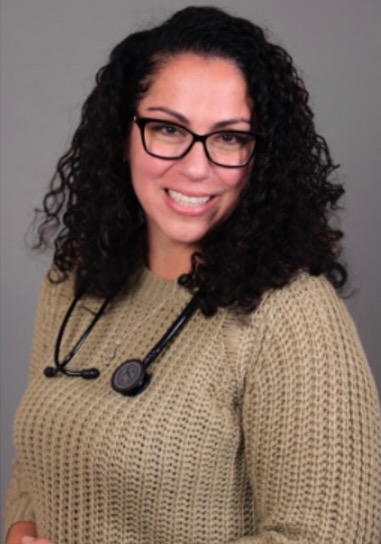Preceptors as Pillars: Elevating Healthcare Through Mentorship and Compassion
June 5, 2025
With the growing shortage of healthcare professionals, clinical preceptors are the key to educating and instilling confidence in the nation’s next generation of providers.
Preceptors are licensed clinicians who act as instructors who supervise students during their clinical rotations. Preceptors are a key piece in bridging the gap between the classroom and hands-on practice.

Daisy Rivera, PA-C, remains steadfast in her commitment to shaping the minds of physician assistant (PA) students during their clinical rotations. Rivera currently serves as the director of Physician Assistant Education at St. Christopher’s Hospital for Children where she is responsible for the organization, administration, review and development of its physician assistant program. In this role, her goal is to foster relationships with students and ensure they receive outstanding clinical training.
For over 100 years, St. Chris’s has provided comprehensive family- and patient-centered care using a multidisciplinary team that includes medical providers, social workers, behavioral health consultants, researchers and clinical support staff. The hospital is home to one of only three Level I Pediatric Trauma Centers in Pennsylvania, allowing it to address everything from broken bones to complex injuries and conditions.
Rivera noted that these attributes make St. Chris’s a unique experience for a clinical rotation. She strongly encourages students to shadow the multidisciplinary teams to better understand how each position plays a unique role in overall patient care.
However, her dedication to mentoring these students comes from her desire to make a positive impact on the PA community and prepare students to be well-rounded providers.
“I tell my PA students that I am not here to lecture them on what they have already been exposed to during their didactic phase. My role is to serve as a model for providing culturally competent, non-judgmental, compassionate and comprehensive whole-person care,” Rivera explained.
She believes that preceptors have the power to inspire others and influence career trajectories. Rivera noted that the experience is extremely personal for her.
“I shadowed two PAs who made a profound impact on me,” she said. “One PA was an HIV provider, and the other was in pediatrics. I am very blessed to combine both in my career. I feel that it is my turn to pay it forward and precept. It is my mission through education and preceptorship to increase the knowledge and awareness of current and future medical providers.”

Rivera shared that her experiences assisting with her mother’s care pushed her to dedicate herself to this profession—providing a heightened sense of care and respect for all her patients.
“Even before becoming a PA, attending medical appointments with my mom exposed me to many health inequities and disparities. Her medical providers used medical jargon, spoke above her, and she just nodded so as not to disappoint . That day I vowed that I would never allow such behavior again, not for my mom or future patients,” she illustrated.
Rivera noted that her internal motivation comes from the drive to push beyond her comfort zone. She hopes to network and expand her skills outside of the clinical space into topics such as policymaking, advocacy and philanthropy.
For now, Rivera leaves a word of advice for future PAs.
“Grow beyond the clinical PA role. Find your why. Make it your mission and passion. Utilize your voice to create change. Let us have the voices of our profession, communities and minorities heard and work on ending health disparities and inequities. Know your worth and bring your best self. It is a sacrifice and hard but if it were not, everybody would do it,” Rivera says.
Written by Myleah Herbert '25